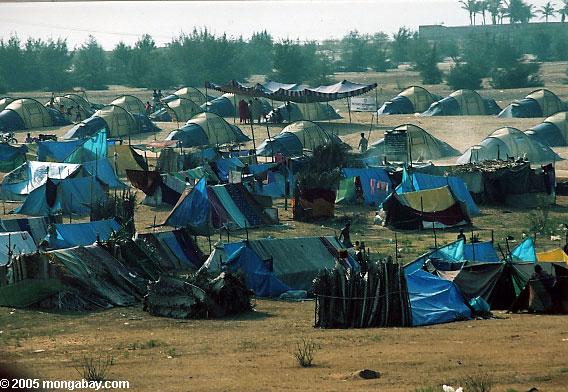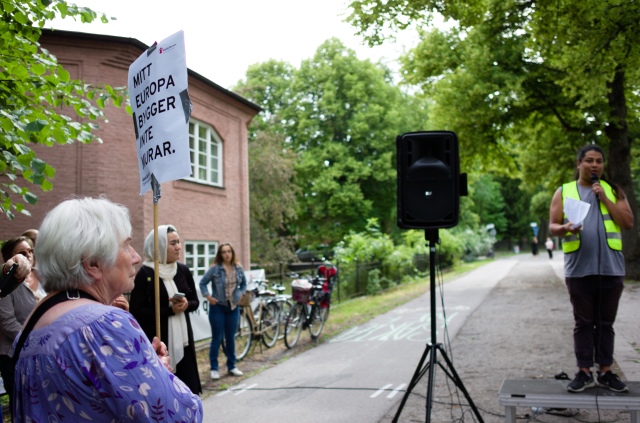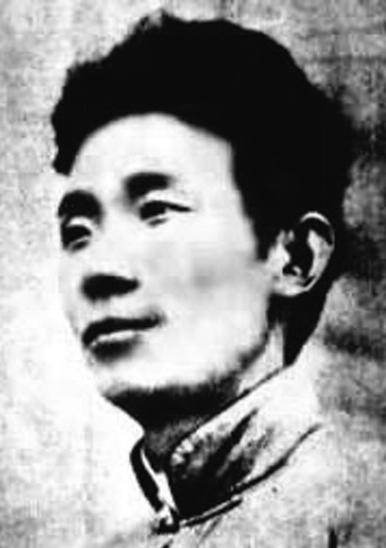Short stories, as a literary form, are sadly overlooked and not commonly held as having the same status as novels. It is ordinarily held that for a story to have great character development and a satisfying plot, the story must be told in a proper novel form. This is a grand misconception, for many great stories are in fact short stories.

With this in mind, I will begin a new series on this blog where I review short stories worth reading and contemplating as a satisfying literary form.
Recently Granta, a literary magazine and publishing organization from the United Kingdom, distributed a book that has a large collection of short stories from Britain’s “Best Young Authors”. This is a tradition that Granta started in 1993; a collection of short stories is published (as I have understood) every ten years. Granta’s mission, according to them, is to underline ”the power and urgency of the story, both in fiction and non-fiction, and the story’s supreme ability to describe, illuminate and make real”. According to “Flavorwire”, to be selected as a “Best Young British Author” in this anthology is an honor that, in their words, is “more often than not is a harbinger of success”. A believable claim, since authors Salman Rushdie and Monica Ali became big stars in the literary fields after being featured in Granta’s anthology. This year’s Granta collection, named “Granta 123”, features writers such as Helen Oyeyemi, Kamila Shamsie, and Xiaolu Guo, among many other impressive names. From this anthology I have selected the gripping and concise short story by Xiaolu Guo that will be discussed in this review of the short story format.

A collection of Granta’s published magazines
Xiaolu Guo was born in 1973 in China, but has lived for quite a while in England. Ms. Guo is both a novelist and filmmaker. She debuted as a novelist in 1999 in China and wrote her first short story collections and novels in Mandarin. Her third novel “A Concise Chinese-English Dictionary For Lovers” (2007) was written in (purposely broken) English and has since then been translated into 26 different languages. In “Granta 123” Guo presents us with a four-page long story titled “Interim Zone”.

Ms. Xiaolu Guo
The first thing that must be said about “Interim Zone” is that it is much, much better than “A Concise Chinese-English Dictionary For Lovers” – which is no easy feat. While Guo’s famous novel was funny, inventive in its writing style and harbored a marvelous depiction of culture-shock (and is commonly exposing a sharp social and political tone) “Interim Zone” is that rare story that is able to hit you right in the feelings. It truly does make you stay up at night just thinking about the story and its single character. “Interim Zone” tells the story of Jian, a Chinese refugee waiting to receive asylum from France. He is located at a refugee camp, where he spends his time praying to Pangu (a main figure in Chinese mythology), learning French and watching the other refugees at the Camp. While waiting to get asylum, he starts to remember his childhood in China. In particular, he remembers an incident involving a beating he received by some playmates and his father’s cold and cruel response to this event. Essentially, the father blames Jian for his own misfortune. Jian’s father was mostly an absent parent, which makes this memory even more painful for Jian.
Guo never mentions basic information about Jian, such as his age or why he has become a refugee. Despite this missing information, Jian becomes a fully fleshed out character through Guo’s narrative structure of mere description of Jian’s thoughts and actions within the event of a single day. Jian is shown to have a strong sense of irony when pondering on people’s habit of creating gods identical to themselves. It turns out that Jian has a talent in figuring other people out by studying them, as reflected in his observations of the other refugees. Yet despite this talent, Jian is a very lonely soul. He has been a very lonely soul for many years, ever since he was neglected by his father.

Guo uses the broken father-son relationship to draw parallels to Jians loneliness at the camp. Jian claims that though he has been recently excluded and exiled from his homeland, he in reality feels that his father had already condemned him to exile years before the advent of the refugee camp. Ms. Guo has used similar parallels in her previous works. For example in “A Concise Chinese-English Dictionary For Lovers” the protagonist Zhuang explains how her physically abusive mother is mirrored in the Chinese Communist Party (CCP) in that time is suspended and prolonged in their cruelty.

This conundrum of Parental mistreatment as linked and reflected by unjust politics is a common theme running throughout contemporary literature ( For example: The Austrian Nobel laureate Elfriede Jelinek’s work “The Piano Teacher” itself is an entire novel using a metaphor to link these two things together.) and this conjunctive hybrid works perfectly in “Interim Zone”. This is due to the fact that the juxtaposed metaphor becomes a dual exploration of Jians situation in life as both an abuse survivor and refugee. In the midst of this dilemma Guo still holds a narrative which becomes a tantalizing and beautiful statement about the nature and foundation of loneliness itself. “Interim Zone” is a representation of the hidden nature of the sense of isolation, and, as bell hooks has stated: “Oppression begins at home”, where isolation and exile abide.


















